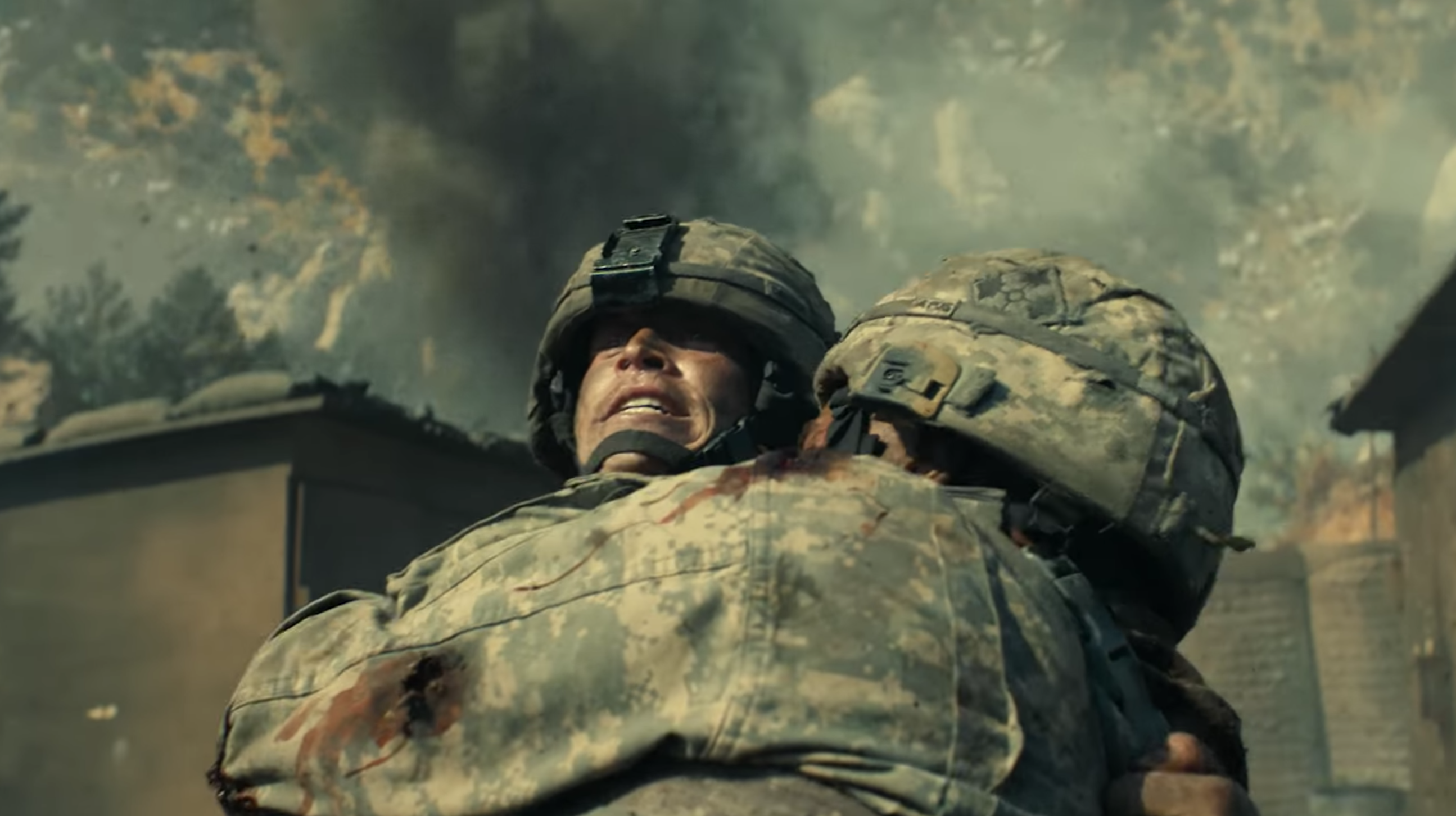I’m very sorry that Rod Lurie‘s The Outpost, which had been scheduled to debut at South by Southwest on 3.14 with a follow-up on 3.17, has taken a COV-19 torpedo along with the whole SXSW ship. Yes, Rod and I are friendly but this is nonetheless a strong, vital and worthy film, and it would have been suitably launched had things gone off as planned. Life is unfair.
Early last November I caught a not-quite-finished version. A U.S. forces-vs.-the-Taliban war flick based on Jake Tapper’s book, it’s a rousing, highly emotional drill into another tough battle that actually happened, and another example of the kind of combat flick to which we’ve all become accustomed — one in which the U.S. forces get their asses kicked and barely survive.
Tapper’s same-titled book, published in 2013, is about the ordeal of U.S. troops defending Combat Outpost Keating. Located at the bottom of a steep canyon and absurdly vulnerable to shooters in the surrounding hills, the outpost was brutally attacked by Taliban forces on 10.3.09. For a while there it was very touch-and-go. The base was nearly overrun. Eight Americans and four Afghans defenders were killed.
Staff Sergeant Clint Romesha and Specialist Ty Michael Carter (respectively played in Lurie’s film by Scott Eastwood and Caleb Landry Jones) were awarded the Medal of Honor.
The Outpost starts off, naturally enough, with a subdued queasy feeling of “okay, how long before the bad stuff starts?” What happens is that things start to go wrong vaguely, gradually, in small measures. Then it upshifts into unsettling (a name-brand actor buys it) and then bad to worse, and then worse than that. And then the bracing, teeth-rattling 30- to 40-minute finale.
Lone Survivor, Hamburger Hill, Black Hawk Down, The Hurt Locker, In The Valley of Elah, Platoon, We Were Soldiers, Pork Chop Hill — American forces go to war for questionable or dubious reasons and the troops engaged get shot and pounded all to hell. Those who barely survive are shattered, exhausted, gutted. War is bad karma.
It just occured to me that one of the things I loved about Zero Dark Thirty, which is not about the military but the intelligence community, is that it ends with a feeling of modest satisfaction — bad guy smoked, mission accomplished, all is well.
I know I was expected to feel a similar kind of satisfaction from Clint Eastwood‘s Heartbreak Ridge, but I didn’t.
Variety‘s Steven Gaydos, posted last November: “Thanks for calling attention to this terrific film that packs a wallop. Really an edge of the seat experience from start to finish and deeply moving as well. Very Charge of the Light Brigade in that ‘military intelligence’ once again proves oxymoronic and brave young souls are left to figure a way to save each other from catastrophe. Heroes.”

